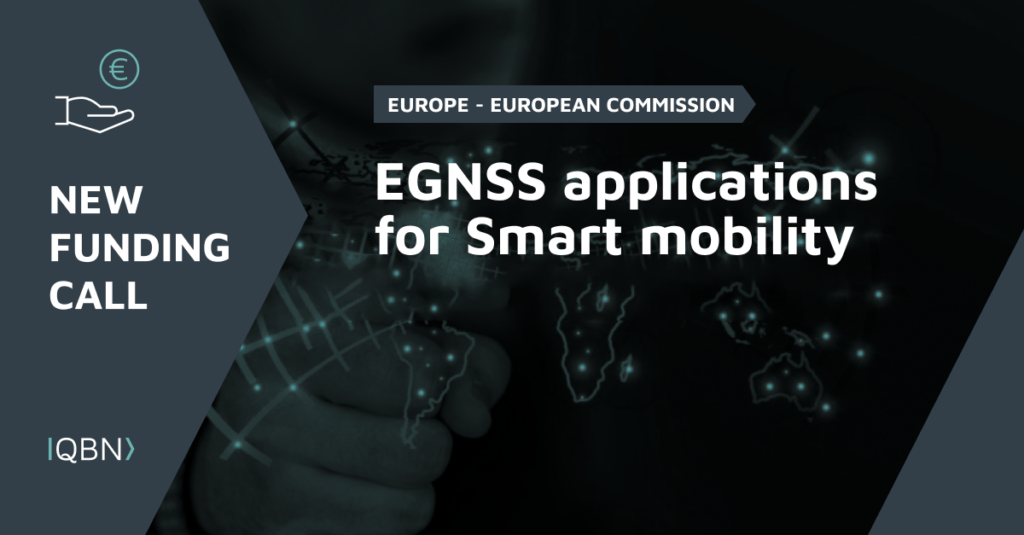Expected Outcome:
Projects are expected to contribute to the following outcomes:
- Development of EGNSS based accuracy, safety-and liability-critical applications in long lead time market segments such as aviation, maritime, rail, road transportation and multi modal domains.
- EGNSS response to the increasing mobility demands and emerging transport solutions, such as those enabled by autonomous or unmanned platforms, supporting new policies aimed to incentivise green and sustainable transportation of goods and people.
- The action aims at fostering the EGNSS market uptake in transport. Applications should demonstrate the advantage of Galileo and EGNOS specific features and differentiators for their use in smart and green mobility, and should contribute to a resource efficient, safe, climate and environmentally friendly transport, that will be for the benefit of citizens, the economy and society.
Scope:
Proposals may be submitted in any of the transport areas or propose a multi-mode approach:
- Aviation: EGNSS solutions for modernising and improving air operations and traffic management technologies, addressing Communication, Positioning, Navigation and Timing, as well as Surveillance, targeting new navigation operations powered by EGNSS (e.g. 4D, GBAS DFMC, surveillance), increased airport efficiency (e.g. leveraging SWIM), critical airport and future drone-port infrastructure management (e.g. synchronization, monitoring, surveying), polar routes surveillance against space weather events and facilitating integration of drones in the airspace (drone operations, U-Space services leveraging EGNSS and Earth observation data, dynamic maps), as well as new entrants in the airspace, such as high altitude flights.
- Maritime: EGNSS solutions that reduce emissions in shipping and increase efficiency of operations (e.g. ports operations and logistics, intelligent routing), safety (e.g. fisheries, navigation at sea, coastal and inland waters, surveillance and accident investigation, search and rescue at sea), and resilience, polar routes surveillance against space weather events and drive the modernization of the sector (e.g. Internet of boats, automation, autonomous sea cleaning, GNSS contribution to marine communication networks).
- Rail: EGNSS for cheaper, smarter, higher performance, safer and emission-efficient solutions (e.g. contributing to the deployment of EGNSS based signalling and its inclusion into the evolution of the European Train Control System (ETCS), efficiency-focused innovations enabling cost reductions, capacity increase and automation, infrastructure management, dangerous goods transport, autonomous trains). EGNSS based train localization for critical applications as well as the use of Copernicus for infrastructure related operations should ensure that the EU railways sector keeps pace with rest of the world, where the adoption of space-based services already started. Maintenance of rail existing infrastructure and support to new lines is also considered.
- Road: EGNSS solutions for regulated markets that reduce traffic, optimise fuel consumption, lower emissions, and foster cheaper, smarter, safer and greener transportation, including smart public transportation. EGNSS solutions to support the development of connected and autonomous driving, next generation vehicles and novel user equipment, new capacities for vehicles, e.g. intelligent speed adaptation, and the use of integrated space data for road safety and environment, such as monitorisation of road infrastructures (e.g. landslides and bridge infrastructure), and AI-based cyber threat mitigation (e.g. spoofing attacks on localization). EGNSS solutions that benefit from EGNSS regulations such as the eCall system (e.g. GNSS Tolling for passengers cars, congestion charging in Smart Cities, eParking, traffic information), or of the Smart Tachograph in commercial vehicles (e.g. custom control and cross-border enforcement, cabotage and freight activities).
Proposals should deliver new innovative applications, with commercial impact and a clear market uptake. The use of other space components such as Copernicus is highly encouraged. The developed solutions may integrate other non-space technologies like IoT, big data, artificial intelligence, drones, 5G, augmented/mixed reality etc.
Deadline: 02 March 2023 17:00:00 Brussels time
For more information, please visit the European Commisssion web page.



